Z stands for Gen Zest!
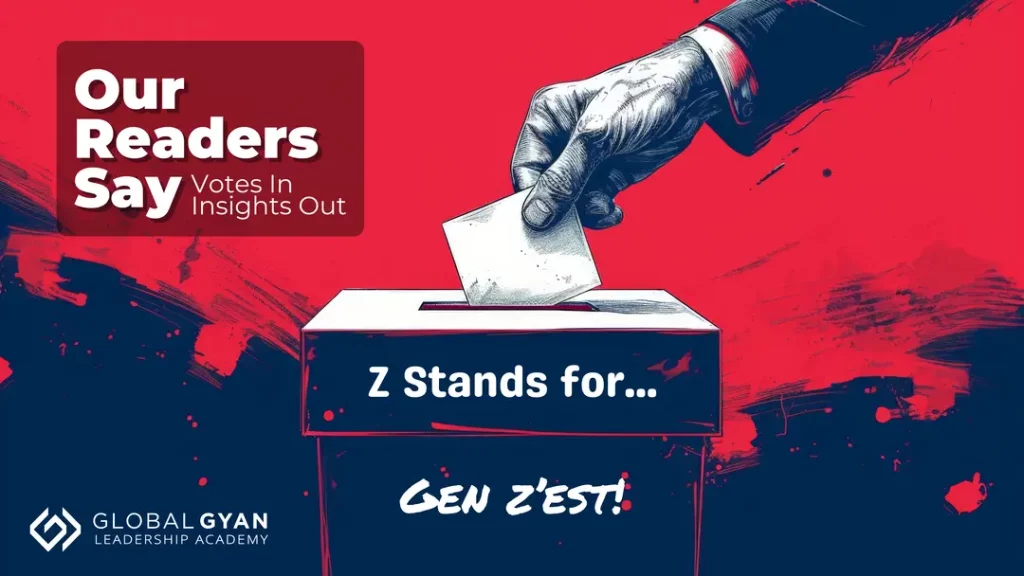
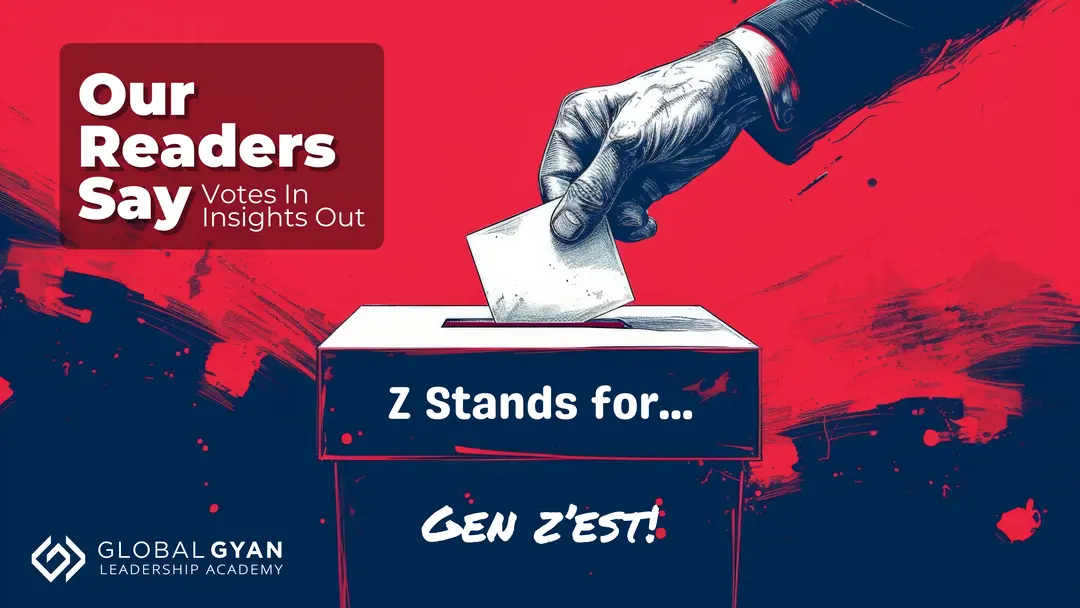
Move over Boomers, Gen Xers & millennials; Gen Zs are in the block. And they’re taking the corporate world by storm!
It’s no secret that this generation, poised to be the future of the workforce, has breathed new life into the phrase Carpe Diem, but do not their candour fool you. When it comes to work, they can be as serious and sincere as anybody else. Something else worth noting about Gen Z is that they’re making continuous shockwaves in the industry. From introducing mental health initiatives to offering hybrid work setup as well as ample opportunities to learn and grow, these digital natives have challenged conventional work rules in ways their predecessors haven’t, and dare we say, most of the changes have been for the better.
66% of Gen Z want a company culture built on mental health and wellness.
On the flipside, because they are so extremely driven in whatever they do and genuinely care about making a significant impact in their workplace, Gen Zs often struggle with remaining engaged at work. Their perpetual need for instant gratification and constant feedback leaves their superiors anxious, while their communication preferences, which veer towards digital (versus the traditional face-to-face methods), often lead to delays and misunderstandings.
Despite being a mixed bag, we’re incredibly optimistic about the future, because if anyone can deal with the uncertainty, it’s the Gen Zs.
What Our Readers Say
We posed four distinct questions to our readers to expand on their experience of working with Gen Z: What percentage of their team comprises of Gen Z? What strategies do they use to keep Gen Zs engaged at work? What do they think actually keeps Gen Zs engaged at work? What are some of the challenges when managing Gen Zs? The responses we’ve received are reflective of the feistiness & intrigue of the target group. Let’s break them down one question at a time.
Welcoming Gen Z with Open Arms
The opening question in this series gave us a peek into the compositions of teams that our readers manage, with special focus on Gen Z. The poll revealed that Gen Zs are indeed making their mark in the workplace with aplomb. A significant portion of teams had a notable Gen Z presence. A majority of respondents (76%) indicated that a quarter of their team comprised of Gen Z members, demonstrating a strong influence of this vibrant demographic in their organisations.
Following this, a smaller yet notable group—41% of respondents—reported that about 50% of their team members were Gen Z, implying a good blend of generational diversity. A minority 24% claimed to have no Gen Zs on their team, while another 28% of respondents managed teams with more than 50% Gen Zs. These results highlight the gradual permeation of the digital natives in teams, reflecting the shift in workforce demographics as younger professionals increasingly join and shape the work environment.
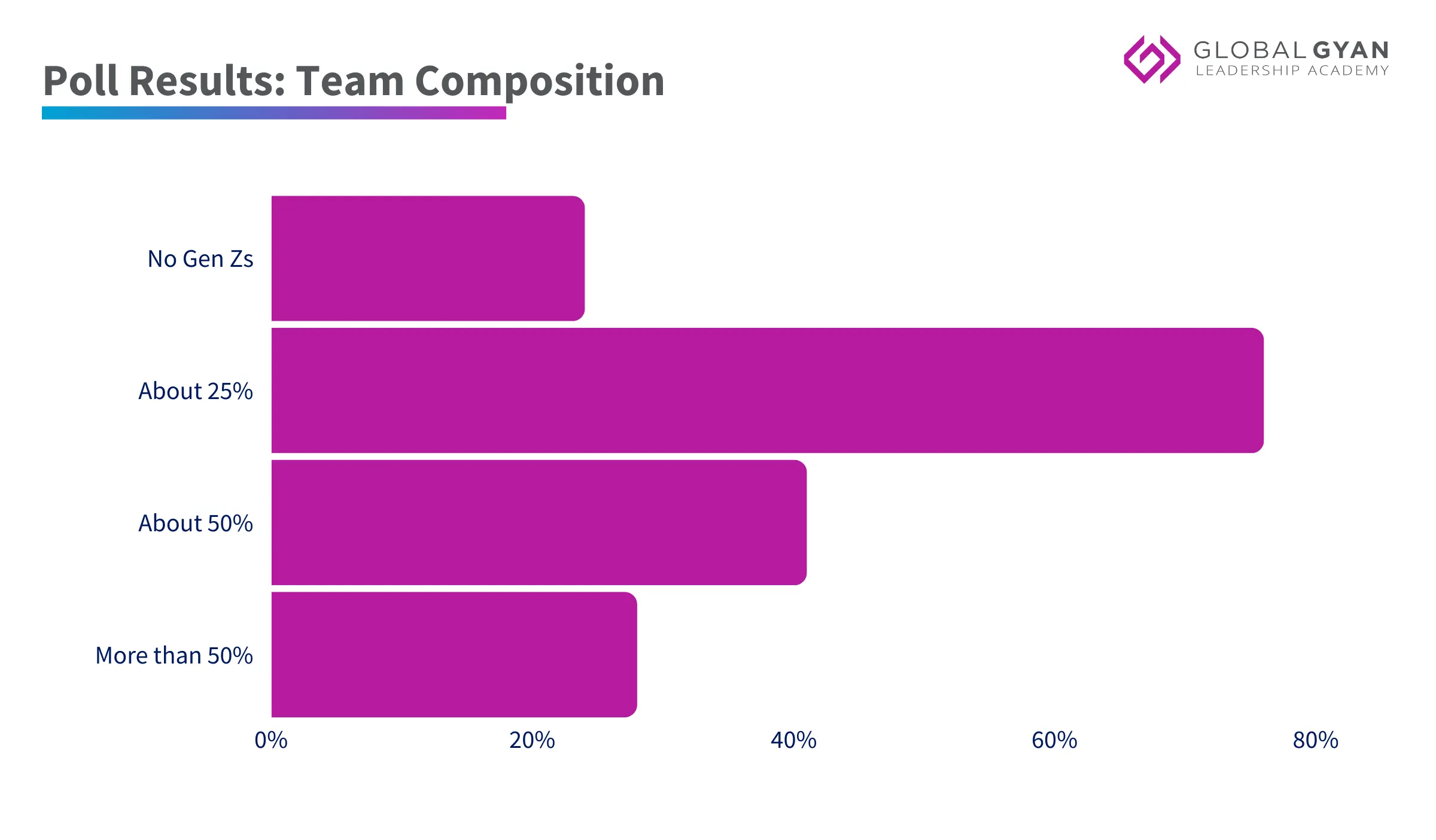
Motivation Drivers: Money & Flexibility
We then asked our readers what were some of the most effective motivation techniques they used to keep the younger workforce engaged. Work flexibility emerged as the top motivator, with nearly 50% of respondents prioritising this approach—this supports the growing importance of a work-life balance for Gen Z. Team-building exercises like offsites and picnics also proved popular, with about 28% managers seeing value in building strong team rapport for effective collaboration.
Fifty percent of respondents also found instant cash/non-cash rewards to be advantageous, showing that immediate recognition still resonates with the younger generation. Annual raises, while still appreciated, ranked lower at 17%, indicating that while financial incentives are valued, they may not be as crucial as more immediate and flexible benefits. These results suggest that to effectively motivate younger employees, managers need to focus on offering flexible work arrangements, team-building opportunities and immediate recognition, rather than relying solely on monetary incentives.
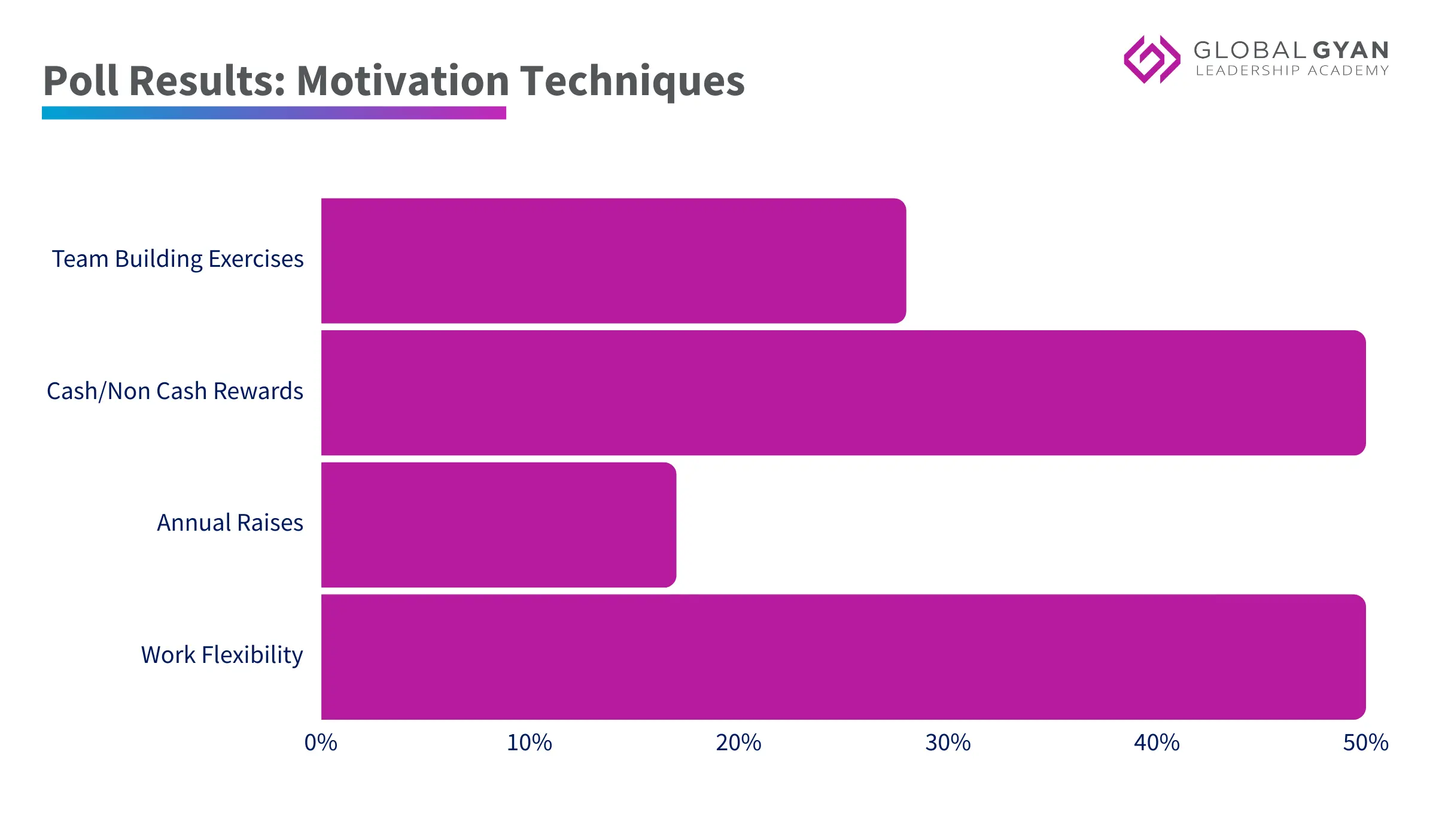
Three Primary Reasons to Work
The most significant factor for keeping Gen Zs engaged in their jobs was meaningful work that helped them serve a higher purpose in the organisation, with nearly 40% of respondents identifying this as the key motivator. This signifies that Gen Z values jobs that align with their personal values and where they can make a tangible impact. Tied with this was opportunities to learn and grow—try a host of things besides their core competencies, indicating that this generation is eager to advance in their careers and are not afraid to try new things.
Recognition and feedback also ranked high up with the rest of the options, reflecting Gen Z’s desire for regular validation and constructive guidance. Interestingly, perks and paychecks, while still important, were the least prioritised, suggesting that financial incentives alone are not enough to keep this generation fully engaged. The key takeaway here is to create a purpose-driven work environment with ample opportunities for growth and regular feedback to retain and motivate Gen Z employees.
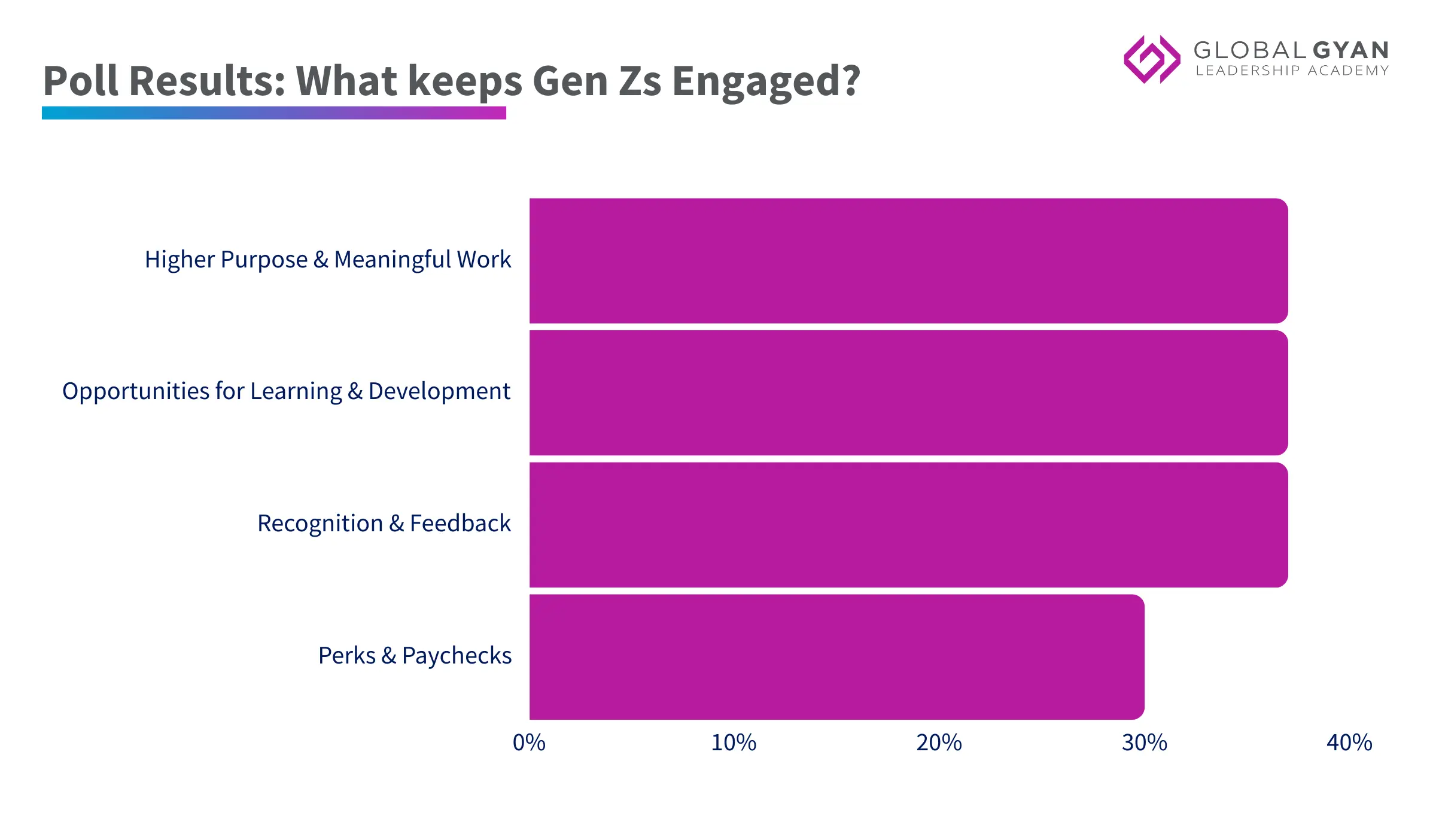
The Feedback Conundrum
Gen Z crave quick and continuous feedback, which posed the biggest challenge for managers working with this cohort. Around 55% of respondents highlighted this as a key issue in our survey. The expectation of immediate, informal responses and validation is often too demanding for managers, who are used to more traditional feedback cycles. Instant gratification came in as the second biggest challenge, with many Gen Z workers expecting rapid rewards and results, which can sometimes clash with longer-term project timelines.
Communication preferences were also a notable challenge, as Gen Z’s reliance on digital platforms like instant messaging can create a disconnect with colleagues who favour more traditional forms of communication. Interestingly, a portion of respondents reported no challenges, expressing immense satisfaction with their Gen Z team. This suggests that while there are generational differences, some teams have successfully bridged the gap and embraced the unique strengths that Gen Z brings to the workplace.
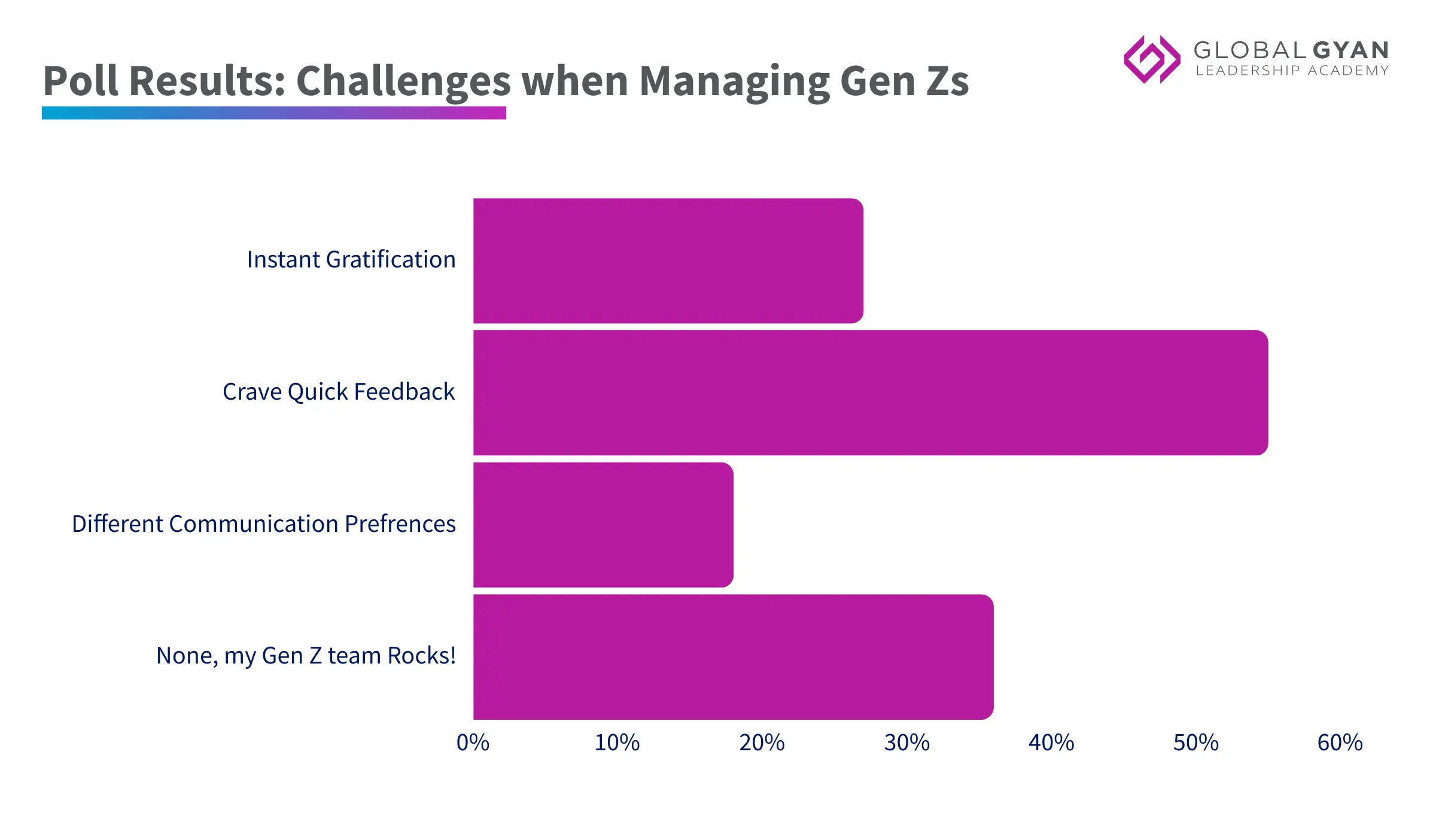
What Our Experts Say
Gen Z, the newest generation entering the workforce, brings a fresh perspective and unique approach to their careers. Unlike previous generations, they don’t see jobs merely as a necessity for financial stability or running households. For many, a job is not something they feel compelled to hold on to out of obligation. This shift in attitude is visible across various socio-economic backgrounds, where even those from less privileged environments approach work with a sense of choice rather than compulsion. This also means that they will not settle for anything.
One of the distinctive traits of Gen Z is that they are present-focused, which essentially means that they prioritise living in the moment, enjoying the fruits of their labour now, over saving for the future/committing to long-term financial planning. This probably explains why those even with modest incomes choose to spend on premium products like iPhones.
When it comes to job skills, while it’s true that some Gen Z employees lack experience or give up easily on the face of challenges, this may also indicate high standards for work that is meaningful and engaging. They are quick to recognise when something doesn’t align with their personal values or interests, and are not afraid to change career paths (a la gig economy). This generation is also known for being self-righteous and ‘woke’, bringing a strong sense of justice and awareness to the workplace.
It is no secret that Gen Zs are over-reliant on smartphones, so much so that they may sometimes not even look at you when having a candid conversation! And, rightly, you may peg them to be rude or distracted, but it also means they are more connected and informed about the world than any previous generation. Their access to information and global awareness can be an asset in the workplace, offering fresh insights and perspectives; especially when you’re stuck in a rut.
To work effectively with Gen Z, the best approach is to build a rapport with them. Show interest in their lives, understand their perspectives and be transparent about the rationale behind tasks, you might be pleasantly surprised with how positively they react to your stewardship. They appreciate when their contributions are valued and when they understand how their work impacts the bigger picture. By taking the time to explain the purpose behind their assignments, you as their manager can maximise their potential and spur their creativity on in ways that even they did not anticipate—and they’d thank you for it.
Have you worked with Gen Zs before? What has been your experience overall? Let us know in the comments below!
Pass on the Gyan!
If you liked what you read and found it useful, please share it within your network.
Our Readers Say is a series of shorter articles where we compile the voices of our reader base. If you have a compelling question that you think can help uncover incredible insights, then please write to us at sharadha@globalgyan.in. We look forward to hearing from you!

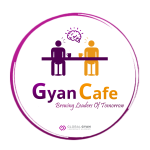
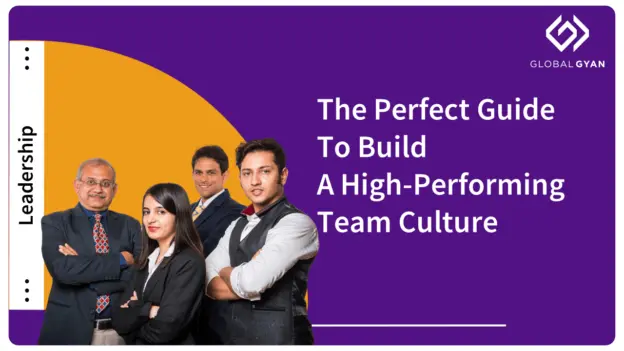


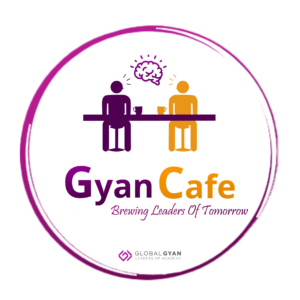
Responses